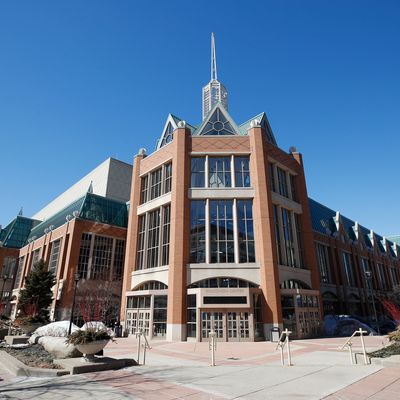
The saga of Republicans trying to accommodate their warrior-king’s desire for a packed arena of unmasked MAGA people to cheer his acceptance speech has dominated 2020 convention news lately. Now the GOP is struggling with residual contractual obligations to the original Charlotte site, where they will hold some of the more boring business of the quadrennial gathering, and an upsurge of local opposition in Jacksonville to the kind of coronavirus-encouraging conditions Trump is demanding for his big night.
Meanwhile, Democrats, who had earlier delayed their convention from July to August and changed rules to make remote voting by delegates possible, have been quietly planning a scaled-down, mostly virtual event. And now they are pulling the trigger on some key decisions, as the Milwaukee Journal Sentinel reports:
* Organizers announced that state delegations should not plan to travel to Milwaukee and should plan to conduct their official convention business remotely.
* A process is being developed to ensure all delegates can cast their votes remotely on the presidential nomination and all other convention matters, planners said.
* Milwaukee is set to anchor events every night from August 17-20, but programming will now include live broadcast and content from “other satellite cities, locations and landmarks” across the United States.
* DNC standing committee meetings, which are tentatively set for the last week of July, will also take place virtually.
The consolation prize for Milwaukee is that Joe Biden will still deliver his acceptance speech there, though it’s unclear what sort of audience will be present. The speech will be moved from the Fiserv Forum, a 17,000 seat arena, to the Wisconsin Center, a cozier exhibit, convention, and ballroom complex.
The big economic hit for Milwaukee will be the absence of delegates and alternates, and the spillover effect in terms of media, lobbyists, and Democratic party-goers who won’t be there to fill hotels and spend discretionary dollars.
But both the national party and local Democrats will at least know they are not likely putting on a convention that will go down in history for all eternity as a pandemic super-spreader event, for the benefit of their nominee’s ego.






























